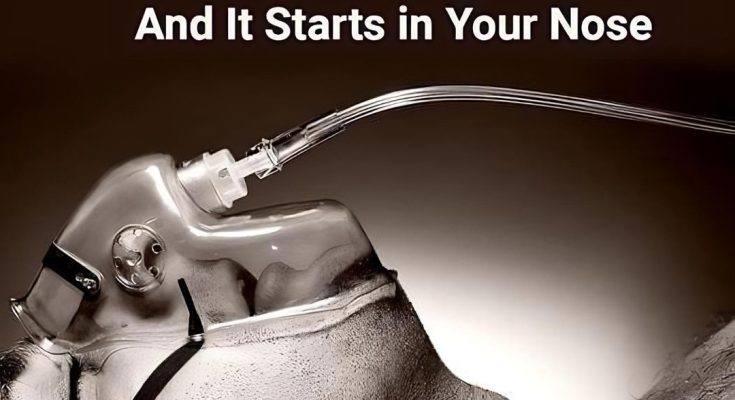The loss of a loved one is one of the most devastating experiences we can face in life. It leaves us feeling lost, shattered, and uncertain of how to move forward. While the emotional and psychological toll is immense, research suggests there may be a primal, biological component to our response to death that occurs on a subconscious level.
Across the animal kingdom, smell has long been a crucial survival mechanism. From predators detecting the scent of prey to animals recognizing the odor of members within their own species, the ability to interpret chemical signals has been essential for navigating the dangers of the natural world. Emerging research indicates that humans are no exception to this rule.
One of the key chemicals that triggers a subconscious alarm in the human brain is putrescine – a foul-smelling organic compound produced during the decomposition of organic matter. Closely related to cadaverine, putrescine is released as bodies begin to break down after death.

Studies have shown that when humans are exposed to the scent of putrescine, they exhibit a physiological reaction akin to the classic “fight-or-flight” response. Rather than consciously associating the odor with death, people tend to instinctively move away from the source, indicating an innate, primal awareness of the danger it represents.
Researchers believe this subconscious reaction to the smell of decay is a vestige of our evolutionary past, when the ability to detect the presence of death was crucial for survival. Just as animals can sense the approach of a predator or the waning health of a member of their group, humans appear to have retained an intuitive awareness of mortality that manifests through our sense of smell.
While we may not consciously register the scent of putrescine, its impact on our psychology and behavior is undeniable. Studies have shown that exposure to death-related odors can trigger feelings of fear, disgust, and even aggression – emotions that likely evolved to help our ancestors navigate dangerous situations.
The loss of a loved one is an immensely painful experience, one that can leave us feeling adrift and powerless in the face of our own mortality. But as science continues to unveil the intricate ways in which our bodies and minds are attuned to the signals of death, we may gain a deeper understanding of the primal, subconscious processes that shape our response to this profound and universal human experience.



